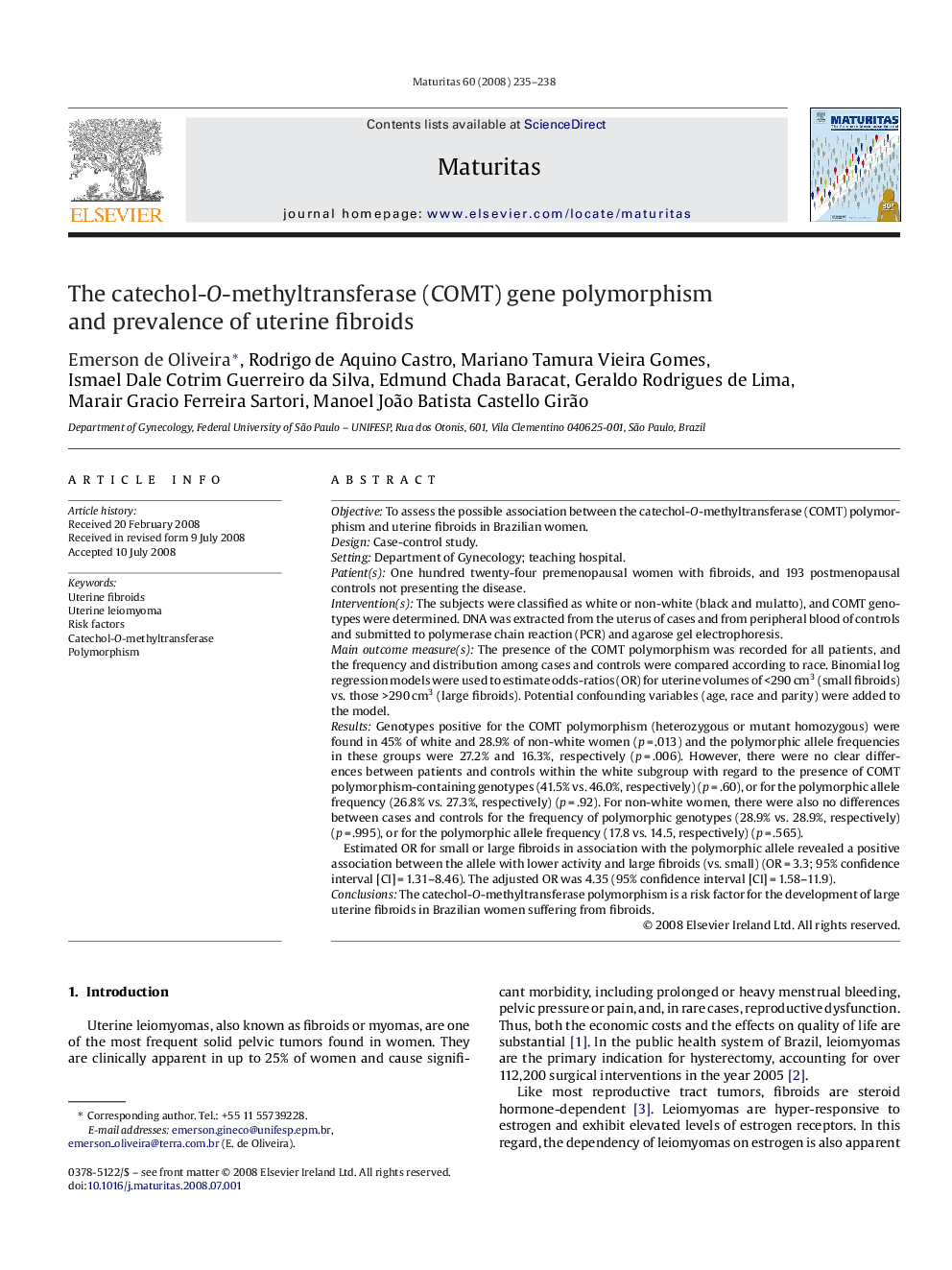| کد مقاله | کد نشریه | سال انتشار | مقاله انگلیسی | نسخه تمام متن |
|---|---|---|---|---|
| 1918240 | 1535308 | 2008 | 4 صفحه PDF | دانلود رایگان |

ObjectiveTo assess the possible association between the catechol-O-methyltransferase (COMT) polymorphism and uterine fibroids in Brazilian women.DesignCase-control study.SettingDepartment of Gynecology; teaching hospital.Patient(s)One hundred twenty-four premenopausal women with fibroids, and 193 postmenopausal controls not presenting the disease.Intervention(s)The subjects were classified as white or non-white (black and mulatto), and COMT genotypes were determined. DNA was extracted from the uterus of cases and from peripheral blood of controls and submitted to polymerase chain reaction (PCR) and agarose gel electrophoresis.Main outcome measure(s)The presence of the COMT polymorphism was recorded for all patients, and the frequency and distribution among cases and controls were compared according to race. Binomial log regression models were used to estimate odds-ratios (OR) for uterine volumes of <290 cm3 (small fibroids) vs. those >290 cm3 (large fibroids). Potential confounding variables (age, race and parity) were added to the model.ResultsGenotypes positive for the COMT polymorphism (heterozygous or mutant homozygous) were found in 45% of white and 28.9% of non-white women (p = .013) and the polymorphic allele frequencies in these groups were 27.2% and 16.3%, respectively (p = .006). However, there were no clear differences between patients and controls within the white subgroup with regard to the presence of COMT polymorphism-containing genotypes (41.5% vs. 46.0%, respectively) (p = .60), or for the polymorphic allele frequency (26.8% vs. 27.3%, respectively) (p = .92). For non-white women, there were also no differences between cases and controls for the frequency of polymorphic genotypes (28.9% vs. 28.9%, respectively) (p = .995), or for the polymorphic allele frequency (17.8 vs. 14.5, respectively) (p = .565).Estimated OR for small or large fibroids in association with the polymorphic allele revealed a positive association between the allele with lower activity and large fibroids (vs. small) (OR = 3.3; 95% confidence interval [CI] = 1.31–8.46). The adjusted OR was 4.35 (95% confidence interval [CI] = 1.58–11.9).ConclusionsThe catechol-O-methyltransferase polymorphism is a risk factor for the development of large uterine fibroids in Brazilian women suffering from fibroids.
Journal: Maturitas - Volume 60, Issues 3–4, July–August 2008, Pages 235–238